Disclaimer: The views and opinions expressed by the Future of Policing Institute fellows are theirs and do not necessarily reflect the views or positions of any entities they represent.
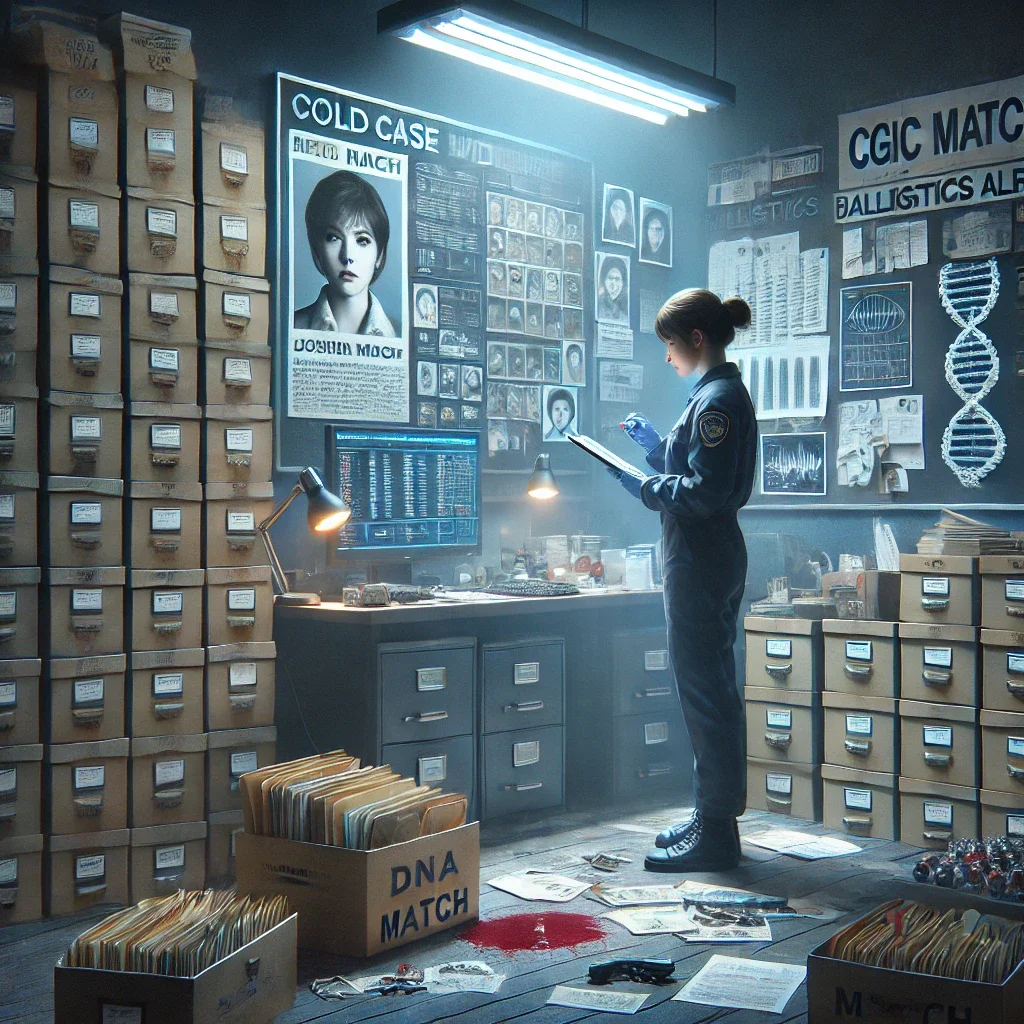
New and Emerging Trends in Cold-Case Homicide Investigations
Cold-case homicide investigations are rapidly evolving, ushering in a new era where cutting-edge DNA recovery tools, advanced ballistics intelligence, and innovative genetic genealogy practices are transforming long-forgotten evidence into actionable leads. With dedicated cold-case units, smarter forensic strategies, and victim-centered approaches, agencies now have sharper tools and clearer frameworks to revisit unsolved murders, connecting the dots that technology couldn’t reach just years ago. Discover how these groundbreaking trends are not only redefining investigative work — but also offering renewed hope and justice for families who have waited decades for answers.

Who Are the Police? Why the Word Matters More Than Ever
When everyone wears “POLICE” on their vest, who do the people truly see? In this powerful reflection, retired Chief, U.S. Marshal, and FPI Fellow Noel March challenges America to rethink what — and who — the word police really means. He argues that blurring the line between local officers and federal agents risks eroding the fragile trust at the heart of community policing. A must-read for anyone who believes words — and trust — still matter in American policing.

Trust Tuning in the Heat of Crisis
Collaboration moves at the speed of trust, and as today’s challenges grow more complex, success depends on our ability to work seamlessly within organizations and across them. That’s why the familiar phrase “trust but verify” deserves a closer look — it’s inherently contradictory. If trust is present, constant verification isn’t needed; if verification dominates, then trust was never truly there. For leaders, the path forward isn’t blind faith or endless suspicion, but the deliberate work of building, calibrating, and tuning trust to fit the moment.

How police can prepare for AI, Doxxing and Disinformation
This episode of Police1’s Policing Matters podcast, hosted by retired San Francisco PD Deputy Chief, and Future Policing Institute Fellow, Jim Dudley addresses the growing threat of AI-driven disinformation, doxxing, and deepfakes to police operations and personnel. How police can prepare for AI, Doxxing and Disinformation highlights the shrinking gap between online agitation and real-world consequences, emphasizing the need for police to proactively monitor social media, rapidly disseminate verified information, and protect officers' digital footprints. The discussion also provides practical strategies for command staff and field supervisors to combat coordinated inauthentic activity and prepare for potential disruptions.
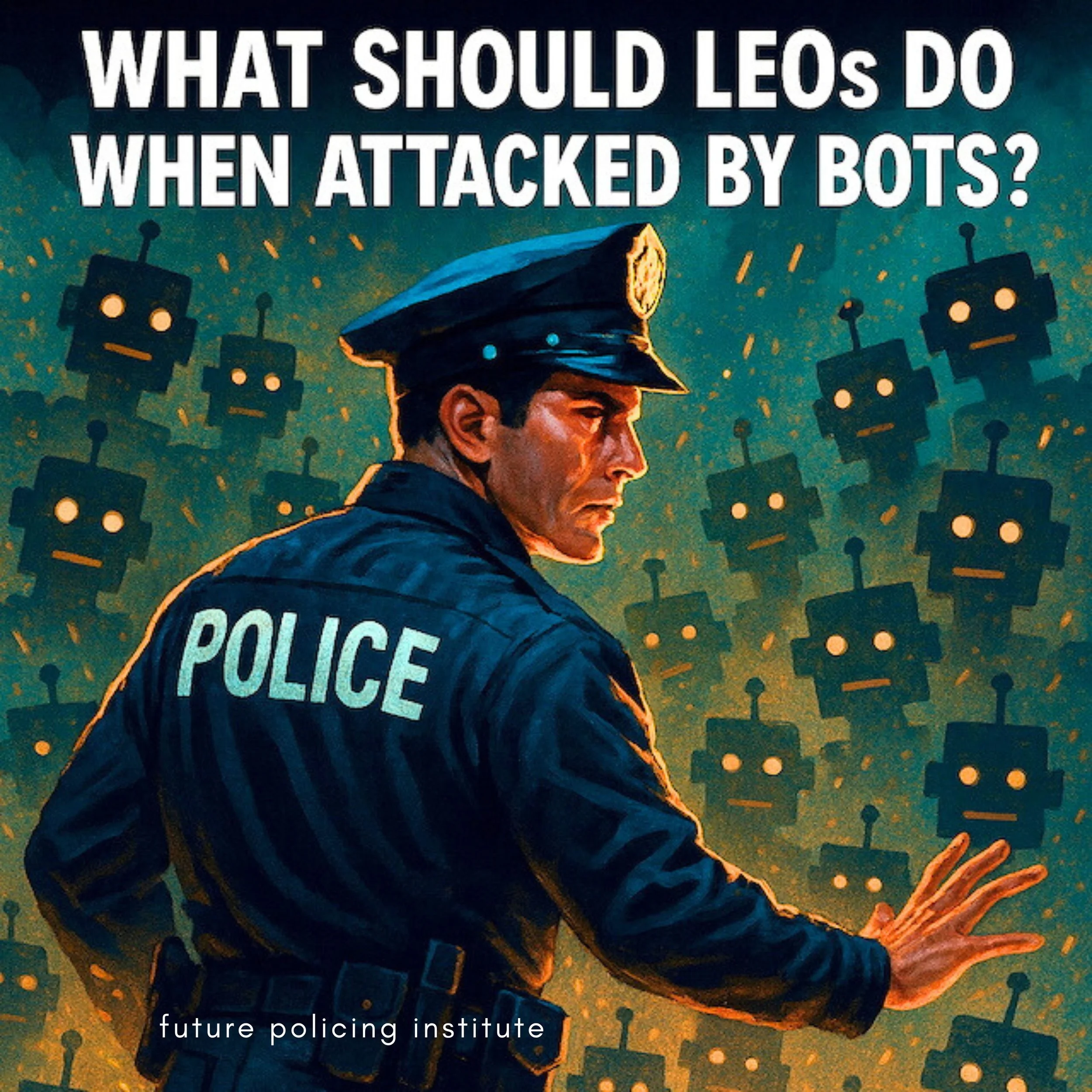
What Can LEOs Do When Attacked By Bots?
The fight over bot armies in Hollywood may seem like gossip, but the same digital tactics are poised to hit policing—and most departments aren’t ready. Bot-driven disinformation can turn everyday cases into credibility crises, spreading lies, stirring unrest, and even endangering officers. This article argues it’s not if but when agencies will face such attacks, making preparation essential. From monitoring spikes in online chatter to issuing timely, accurate statements and protecting officers under fire, it offers a blueprint for survival. Departments that act now will safeguard trust and integrity; those that don’t risk being overwhelmed.
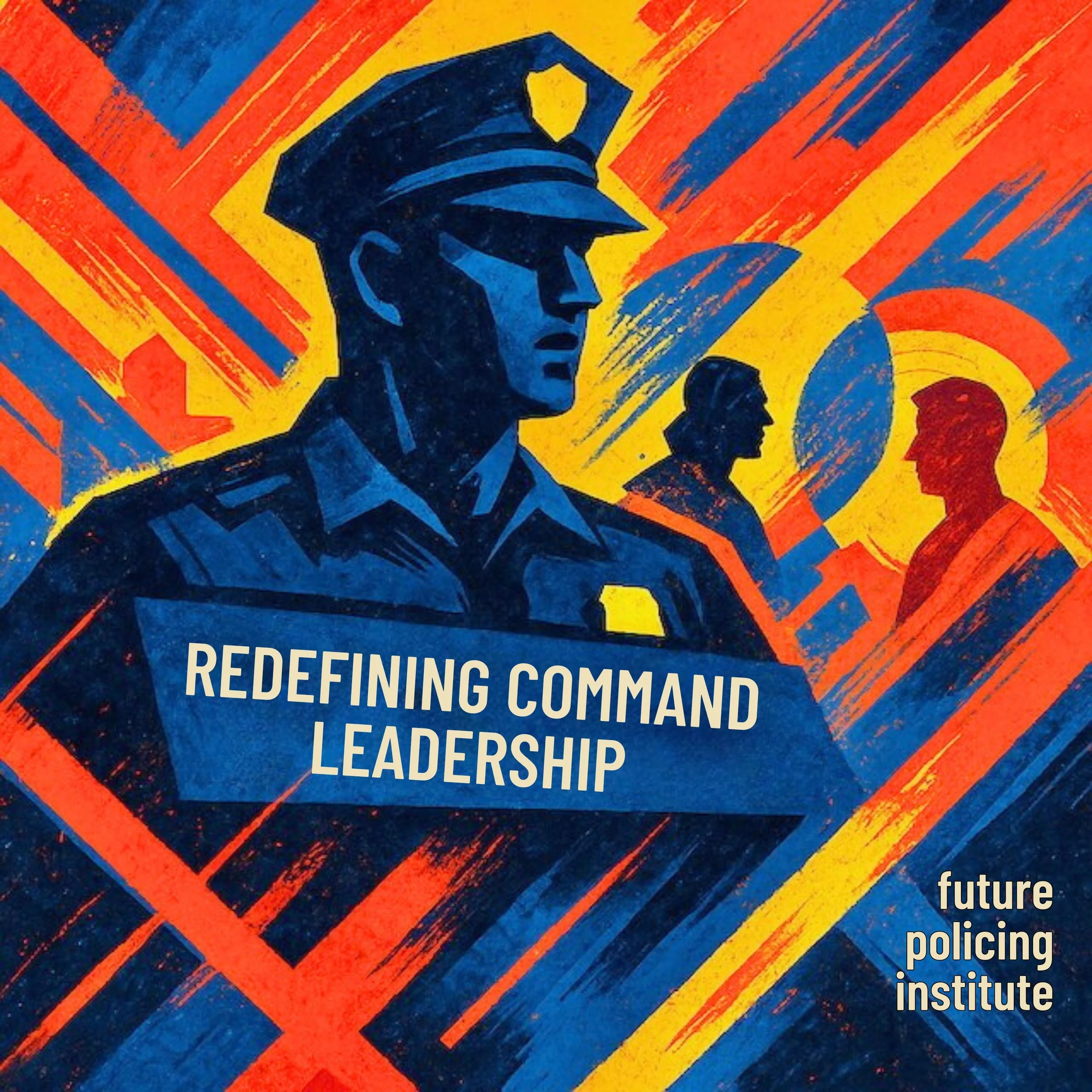
Redefining Command Leadership: Building Adaptive Culture and Organizational Integrity from the Inside Out
This article emphasizes that organizational leaders, especially in policing, must prioritize fair and humane internal processes, intentional culture-building, and long-term stewardship to build trust and effectively evolve their agencies. Without these efforts, departments risk disengagement and fractured trust both within and with the public.

Policing’s Hero Mentality
What if policing wasn't the first response – but the final one? In The Hero Mentality, Captain Craig Solgat, a FPI Fellow, proposes a bold, future-focused vision of policing where police are deployed not by default, but with deliberate purpose.
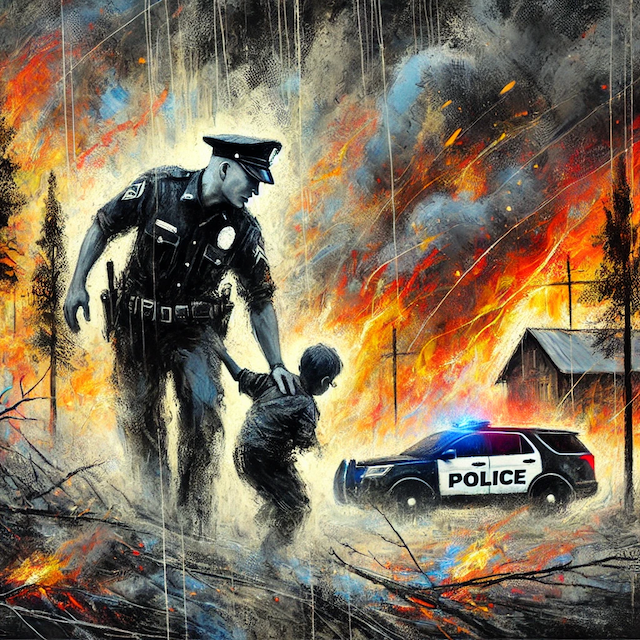
Policing on the Front Lines of a Changing Climate
An officer evacuating residents from a wildfire, not chasing robbers. A trooper searching for survivors in a tornado's wreckage, not for fingerprints. These fictional scenes reveal a growing reality for law enforcement worldwide. This post explores the concept of "adaptive policing," a critical shift in police work needed to confront the escalating challenges of climate change and keep our communities safe.

From Binary to Balanced: A Third Perspective on Immigration Reform
America’s immigration debate has become paralyzed by binary thinking: open vs. closed, welcome vs. deport. But what if that framing is the real problem?
This article by Chief Barney Melekian (ret.) explores how simplistic narratives have sidelined meaningful reform. He shares a bold, common-sense path forward that acknowledges the humanitarian crisis, the burden on local agencies, and the urgent need to move past political stalemates.

The Flashpoint at Home: What the Israel-Iran Conflict — and now U.S.Involvement — Means for American Policing in the Near Future
U.S. airstrikes on Iran raise terror risks and protest potential at home. What police leaders must do now to safeguard soft targets and public trust?
This article outlines how the potential ripple effects of U.S. intervention – rising fuel prices, dual-grievance mass protests, and the threat of sleeper cells or radicalized lone actors – are converging to create serious operational and ethical challenges for police agencies across the country. Click here to read the article.

Redefining the Role of Police Chief: Crisis Leadership in an Era of Federal Pressure and Public Scrutiny
This article by FPI Fellow Jessica Bress explores how the evolving demands of leadership are reshaping the expectations placed on chiefs, and why these emerging competencies are no longer optional – they’re essential for sustaining trust and legitimacy in 21st-century policing. To read the article click here.

When Good Ideas Are Not Enough
This reflective article, by FPI Fellow Brian Gray, explores the tension between traditional policing and future-forward innovation. Drawing from decades of frontline experience and leadership, the Gray makes a compelling case for why policing must move beyond bureaucratic inertia, ego-driven resistance, and outdated thinking to embrace innovation, critical inquiry, and cross-disciplinary collaboration. Click here to read the article.


Finding Balance in Uncertainty: A Quick Leadership Insight
How do you navigate the unexpected in life and leadership? The just-released episode from the Future Policing Institute’s Policing in a Minute podcast presents a timeless Chinese parable, “Maybe yes, maybe no.” It offers profound wisdom for adapting to challenges and opportunities alike.

The Domestic Threat of Weaponized Drones: Are U.S. Law Enforcement Agencies Prepared?
Weaponized drones pose a rising domestic threat, exploiting affordable technology for attacks on civilians and infrastructure. U.S. law enforcement faces significant legal, operational, and technological gaps in preparedness. Enhanced laws, technology investment, specialized training, and public-private cooperation are urgently needed to mitigate this evolving risk effectively.

Latest Episode of Policing in a Minute: Evidence Based Policing
This episode summarizes the essentials of evidence-based policing (EBP), an organizational strategy using the best available evidence to shape police crime control strategies. In brief, EBP reduces crime and boosts community trust.
EBP applies scientific methods to test the effectiveness of policing tactics – it's more than just data. It is proactive; proven tactics help officers target resources effectively to reduce harm and crime. And EBP enhances community trust by emphasizing fairness and accountability.
Evidence-based policing offers a practical and measurable way to achieve safer communities, enhanced community trust, and more effective, empathetic and just policing.

“Exhausted Cops:” A Policing in a Minute Series
Police fatigue is more than just feeling tired — it's a critical issue that affects officer safety, decision-making, and public trust. In this concise yet insightful Policing in a Minute podcast series, produced by the Future Policing Institute, we explore the hidden risks and profound consequences of police fatigue across four episodes.
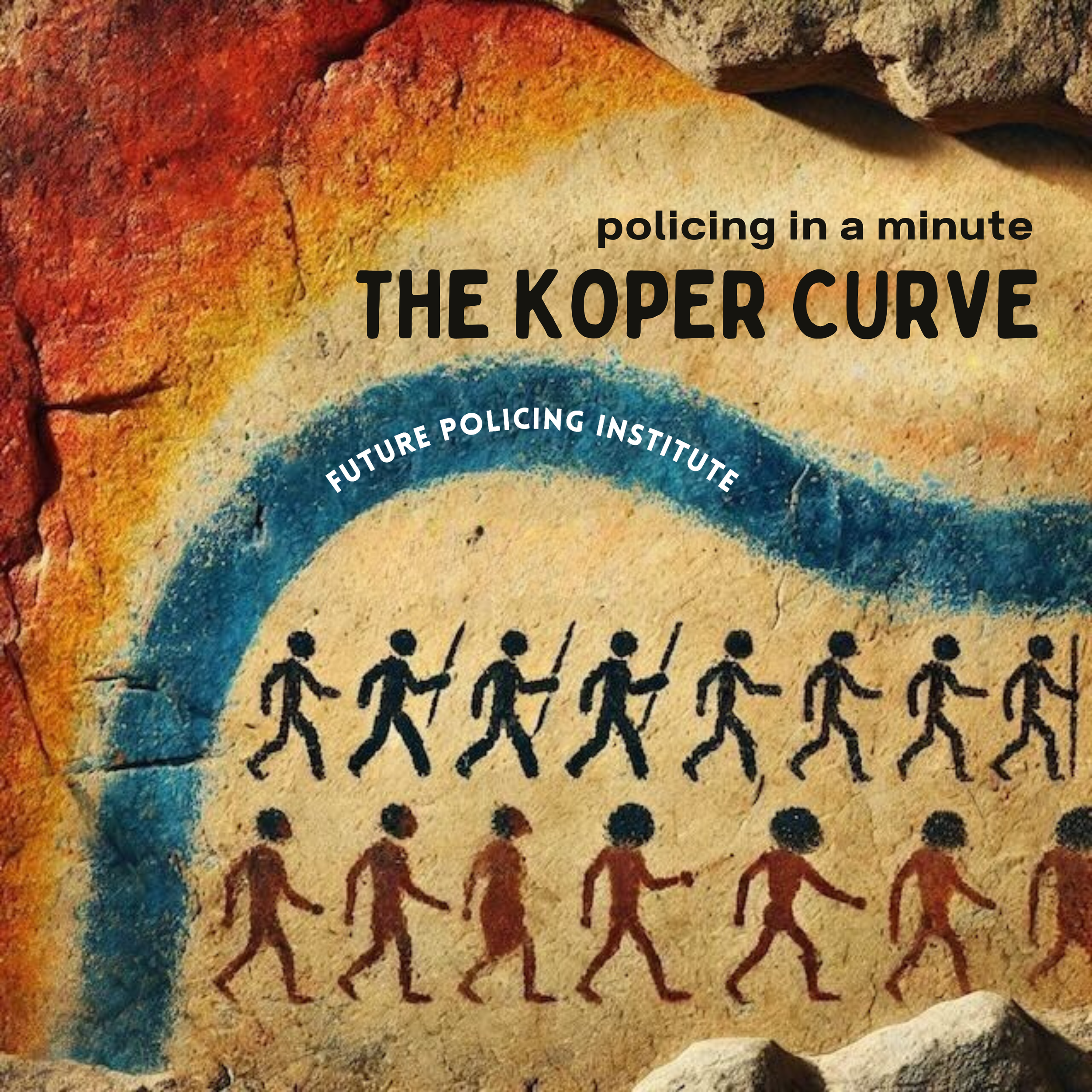
Latest Episode of “Policing in a Minute” is Out
Discover one of the secrets of effective policing with the Policing in a Minute podcast about the Koper Curve! Take a quick dive into the groundbreaking principle developed by criminologist Chris Koper, which reveals how short, strategic patrols in high-crime areas can drastically reduce criminal activity. Learn how officers can maximize their impact, enhance community trust, and create safer neighborhoods with just 10-15 minute visits to high crime areas.
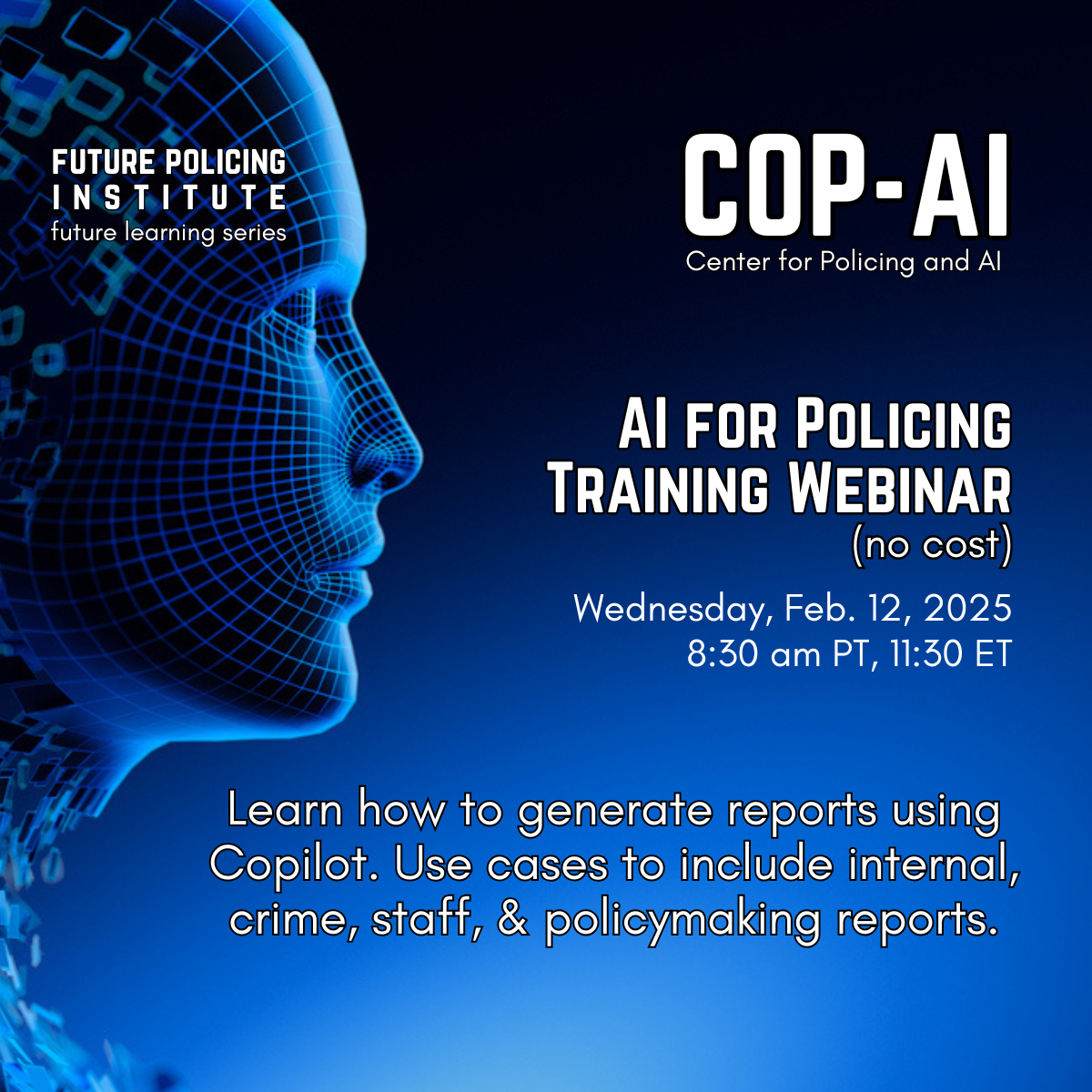
No cost webinar on using AI (Copilot) in Police Report Generation
Register now for the upcoming webinar on using AI (copilot) to more effectively and efficiently create a wide variety of policing reports. It will be at 8:30am PT on Wednesday, February 12, 2025. Registration is now open. Just click on the “read more” below to register.
Attendees will learn the multiple ways in which Copilot can be used to generate a variety of reports. Use cases will include crime reports, staff reports, city council reports, etc. Practical, easy-to-understand information you can put to work immediately!
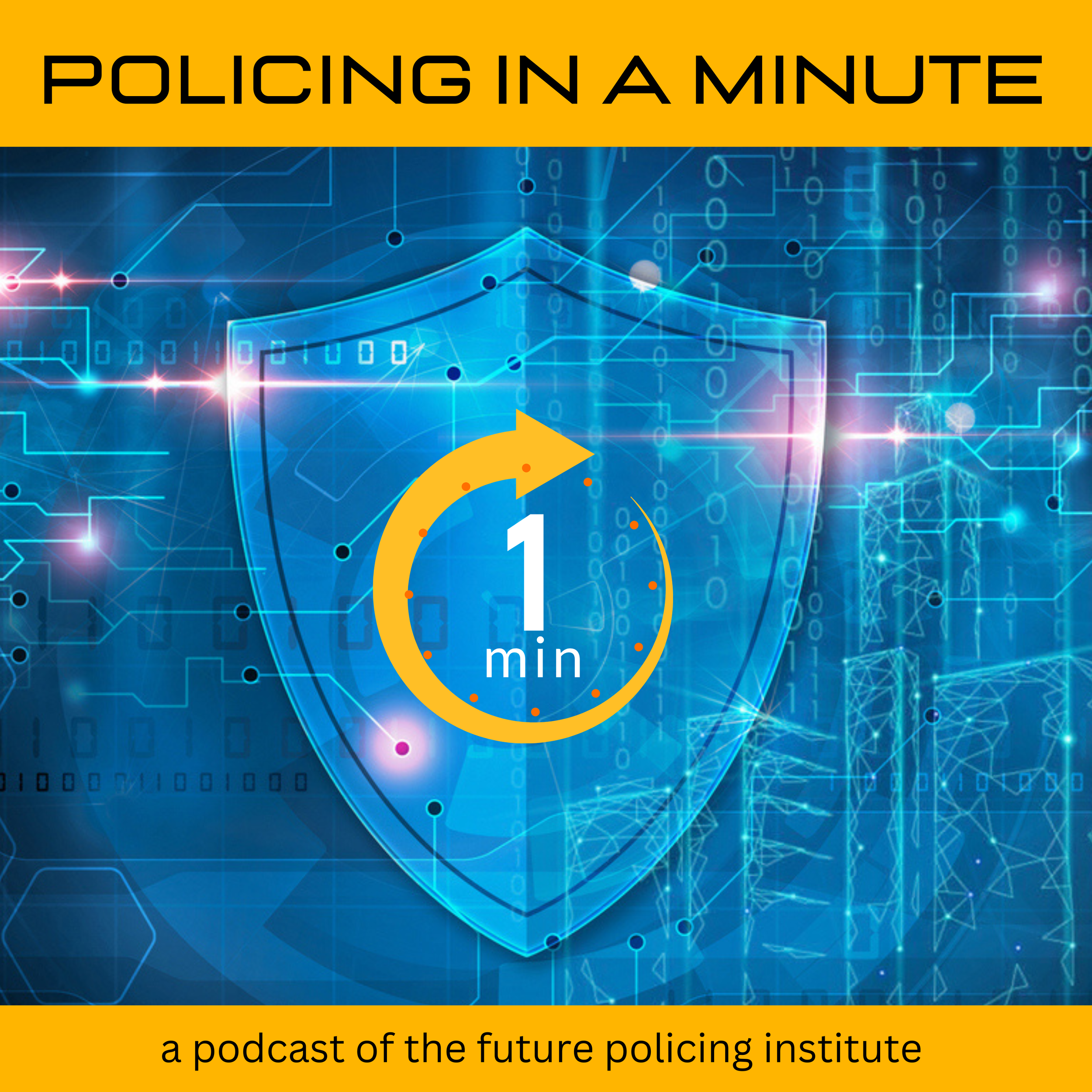
"Policing in a Minute:" A Podcast of the Future Policing Institute
Policing in a Minute is a podcast of the Future Policing Institute. It is intended to provide brief summaries of topics important to policing today and in the future. All in about a minute. Episodes are designed for you to listen to when your time is limited. No fluff. Just the bottom line. We'll try and give you the three most important things you need to know about the subject at hand.

